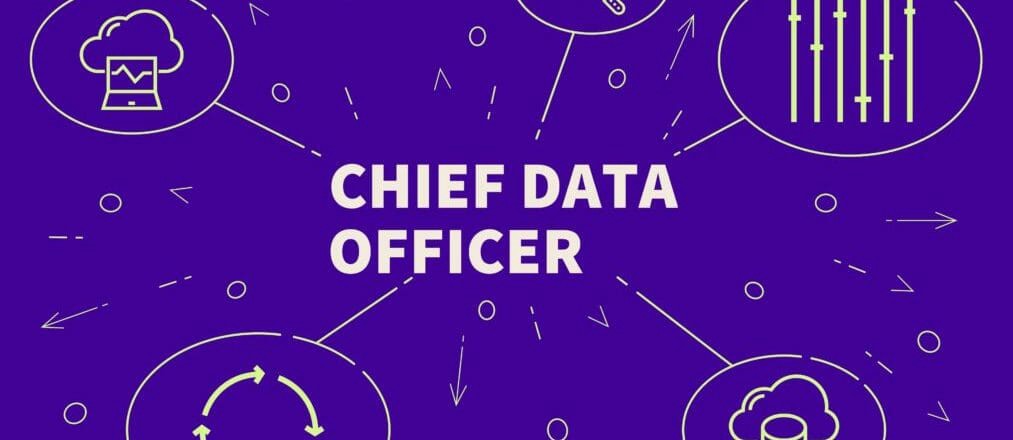Buffkin Baker
June 11, 2021
Blog
This is an abstract from the publication above, by Buffkin Baker a Executive Hunting Firm.
The Chief Data Officer (CDO) in the healthcare industry has changed drastically over the past year, with recent events revealing the need for new ways to harness data and provide innovative insights to help the business adjust to unforeseen demands.
Data has become a valuable commodity and levering that data is now key to developing business practices and efficiencies that will help to lower healthcare costs in the future.
The CDO has moved from leading the technology and data strategies for the organization to becoming fully emerged in data and the role it plays in everyone’s life, making this role one of the most important members of the leadership team.
The first CDO appointment was by CapitalOne in 2002, created as a response to the passing of the Sarbanes-Oxley Act, requiring more data governance.
However, growth for the CDO role remained flat for the next several years, and as recently as 2012 only 12% of large organizations had a CDO.
As data gained momentum, the need for a Chief Data Officer grew and by 2018, nearly 70% of organizations had a CDO.
It is estimated that by 2025, over 90% of large companies, with many being in the healthcare industry, will have a CDO in their C-Suite.
Jen Bradley, Partner says,
“Interoperability has created more of a need for the CDO role,
especially within the healthcare space given the sensitivity of the information.
Now, more than ever, we have an abundance of data at our fingertips,
and we are seeing an immediate need for a true executive to lead that practice.”
The Role of the Chief Data Officer
In most organizations, the Chief Information Officer has been responsible for data and technology, however, the data explosion has created the need for someone to help manage the data infrastructure.
Many organizations are learning how to split the responsibilities around data between the CIO and the CDO.
In the healthcare environment, the CIO is primarily focused on the proper functioning and security of the data center and less focused on research and analytics.
As part of the executive team, the CDO
- oversees the governance, analytics, and security of the data,
- making data-driven decisions that demand accountability and create opportunities to improve revenues and boost productivity.
There is no exact position description for a CDO in the healthcare industry, however, the expectations of the role are similar across the healthcare industry:
- Ensure data quality, reliability, and access
- Increase revenue and lower costs
- Create operational efficiency
- Enhance decision-making through data insights
- Reduce risk in data-driven/data-oriented projects and programs
- Ensure regulatory compliance
- Create competitive advantage
Recruiting a Chief Data Officer
Called the new hero of big data and analytics by IMB, the Chief Data Officer is someone who understands business and strategy with a strong foundation in technology, acting as an internal consultant by creating a strategic roadmap through insights and knowledge to support business decisions.
In an industry where crisis response rapid decisions are the new normal, the CDO must provide the organization with timely and accurate data outcomes that affect the operational strategies in both the short and long term.
A CDO also possesses a strong balance of analytical skills and social skills as the key to creating a data-driven culture is to ensure that everyone is working together for the same goal with clear outcomes.
An effective CDO is a leader that stays abreast of changing data protection regulations and establishes standards for data security while using advanced analytical models to drive innovation around process and quality improvement. Using a solid data management strategy, the CDO identifies waste in unnecessary procedures and treatments, inefficient processes or workflows within the organization, and uncovers greater revenue and cost-efficient opportunities.
With the recent data boom in the healthcare industry, fitting a CDO into the corporate structure is vital in driving innovation and business strategies.
A CDO will be key in leveraging data to innovate, gain efficiencies, reduce costs, and help leaders make better decisions about patient care.
“As a former CIO of large healthcare organizations, I saw the need for the CDO years ago as the complexity and focus with regards to interoperability, outcomes, and value-based reimbursement driving operational and financial decision making,” shares Mark Farrington, Operating Partner. “As Healthcare continues to become more consumer-focused, the CDO role is critical to creating enterprise value and service differentiation.”
Originally published at https://buffkinbaker.com on June 11, 2021.












